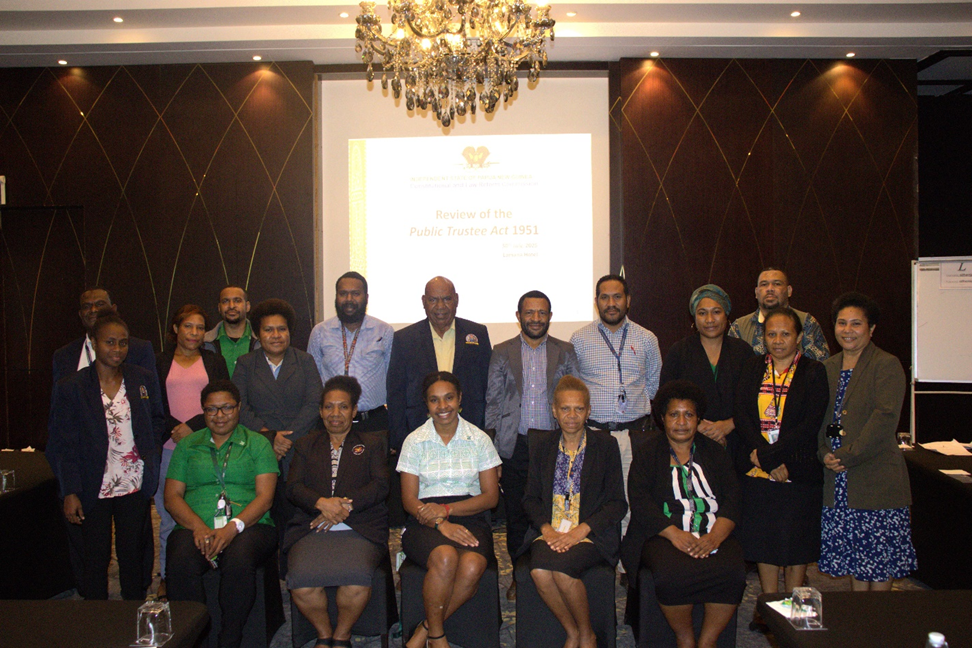The Constitutional and Law Reform Commission (CLRC) recently conducted a two-day workshop, focusing on the review of the Mercantile Act 1953 and the Public Trustee Act 1951.
CLRC conducted an in-depth two-day workshop under its Colonial Law Review Program (CLRP).
The CLRP plays a vital role in fulfilling the CLRC’s mandate, reviewing laws passed on Papua New Guinea’s independence and determining their relevance to the nation’s current legal and developmental priorities.
Both the Mercantile Act 1953 and the Public Trustee Act 1951 were merged into the PNG Constitution at independence in 1975, reflecting their colonial origins and the interests they served during that era.
The Mercantile Act 1953 addresses aspects of commercial law, including debt assignments, powers of attorney, and voidable transfers, with the intent to prevent fraud in business transactions.
The Public Trustee Act 1951 governs the administration of deceased estates, trusts, and insolvencies, designating the Public Trustee as the statutory trustee.
The workshop was led by CLRC Deputy Secretary for Legislative Services, Mrs. Dorothy Mimiko-Kesenga, and CLRC Principal Legal Officer for Colonial Law, Ms. Sandon Kikala.
The two days facilitated in-depth discussions incorporating these laws, identifying areas for potential reform. Stakeholders, including Bank South Pacific (Legal Unit), the Office of the Public Trustee, the Department of Lands and Physical Planning, and the Department of the Prime Minister and National Executive Council (Legal Unit), provided valuable insights.
Key focus areas included policy frameworks, functional clarity, and the resolution of ambiguities; in relation to key terms used throughout the legislation.
CLRC Secretary Dr. Mange Matui emphasized the importance of a comprehensive approach to legal reform.
“We are providing this platform for discussion; as an independent law reform agency, we can assist in this space. Reforms must be holistic, considering related laws to ensure our recommendations do not conflict with other existing legislations,” said Dr. Matui.
The feedback gathered will inform the development of a Position Paper, which will be submitted to relevant agencies with recommendations for legislative reform.

